MSI Creator TRX40 Motherboard Specifications
Here is a list of the key motherboard specs from MSI Creator TRX40 Motherboard:
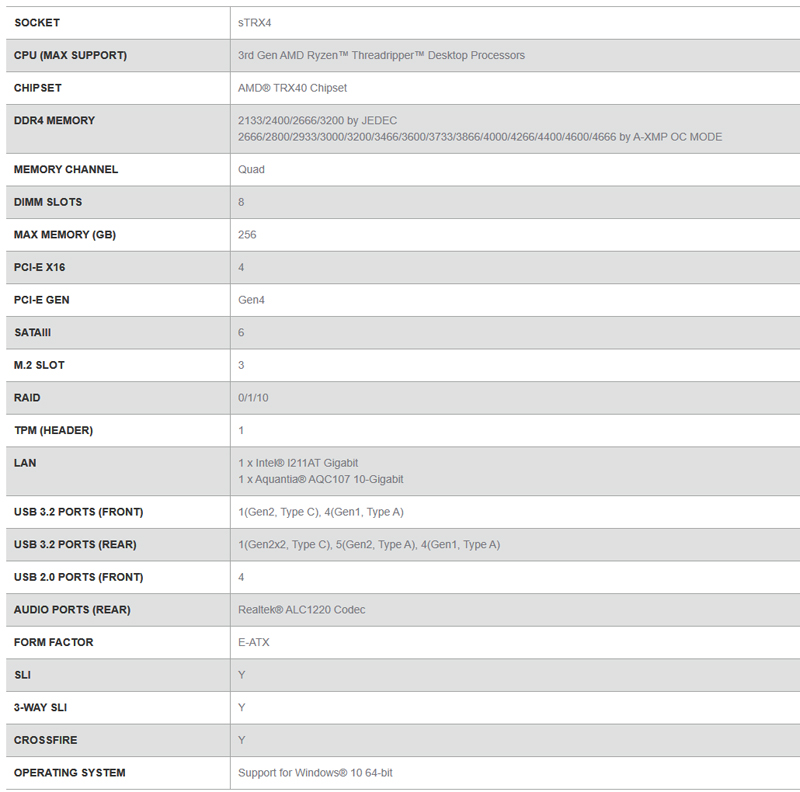
Overall, this is an absolutely a great set of hardware on this platform. Some will clearly long for Thunderbolt, but otherwise, this has most use cases covered.
Test Configuration
Here are the key specs we used in our test system.
• Motherboard: MSI Creator TRX40
• CPU: AMD Ryzen Threadripper 3970X 3.7GHz (32 core/64 thread)
• GPU: NVIDIA GeForce RTX 2080 SUPER
• Cooling: NZXT Kracken X62 AIO Water Cooler
• RAM: Corsair Dominator Platinum RGB 3600MHz 4x 16GB DDR4 (64GB Total)
• SSD: Corsair Force MP600 1TB NVMe SSD
• OS: Windows 10 Pro Workstation
Together, this is a great system. We have also tried this system for a few weeks with the NVIDIA Titan RTX. While not part of our review configuration, that CPU and GPU combination has been absolutely stellar.
For our CPU we will be using an AMD Ryzen Threadripper 3970X 3.7GHz (32 core/64 thread):
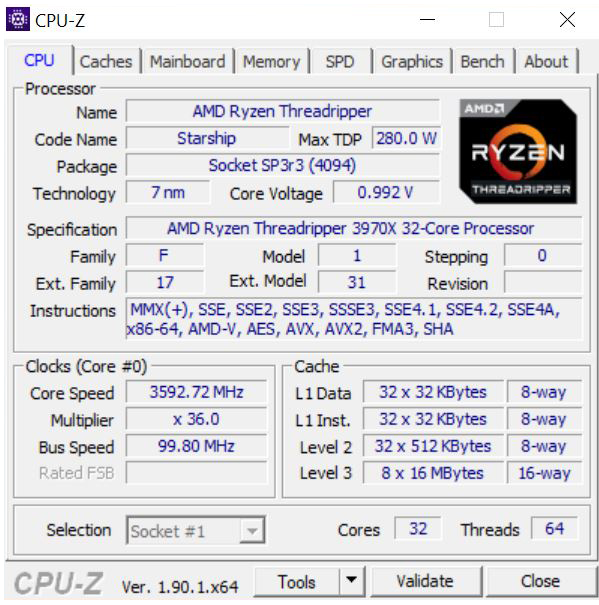
The AMD Ryzen Threadripper 3970X is a very impressive CPU, the base speed is 3.7GHz but can Turbo up to 4.5GHz. It is also fully unlocked and can be overclocked. As of writing this review, this is the highest-end CPU that we can put into this motherboard.
Let us continue with performance testing.
MSI Creator TRX40 Motherboard Performance
As we move along with the motherboard testing, we felt it was time to clean up our database and results in graphs. Some new or newly updated benchmarks render past versions obsolete so we must start over with that benchmark.
MSI Creator TRX40 Motherboard AIDA64 Memory Test
AIDA64 memory bandwidth benchmarks (Memory Read, Memory Write, and Memory Copy) measure the maximum achievable memory data transfer bandwidth.
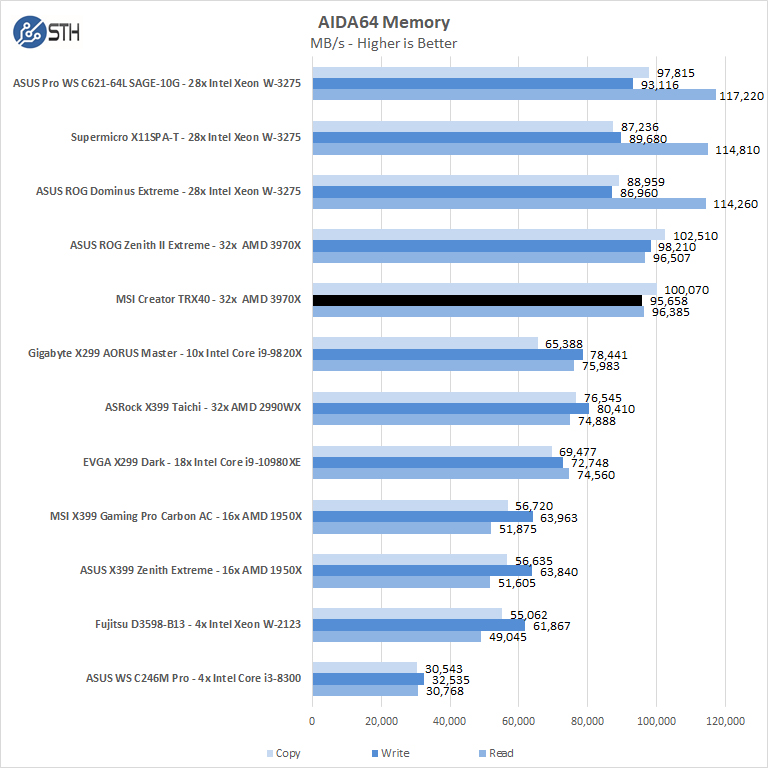
The MSI Creator TRX40 has very fast memory speeds. At the same time, even using higher-clocked memory, the Intel Xeon W-3275 platforms have a lot to offer.
MSI Creator TRX40 Motherboard Cinebench R15
Here are our Cinebench R15 results:
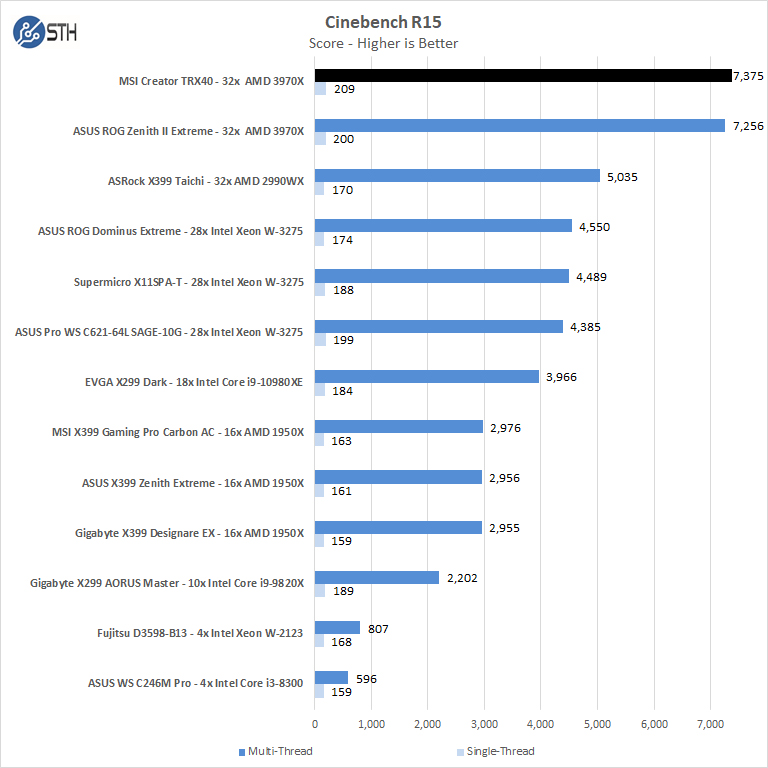
The AMD Ryzen Threadripper 3970X kills this benchmark and easily blows the other processors away with 32 cores / 64 threads.
MSI Creator TRX40 Motherboard Cinebench R20
We have started run Cinebench R20 in our reviews which is updated with a larger test scene.
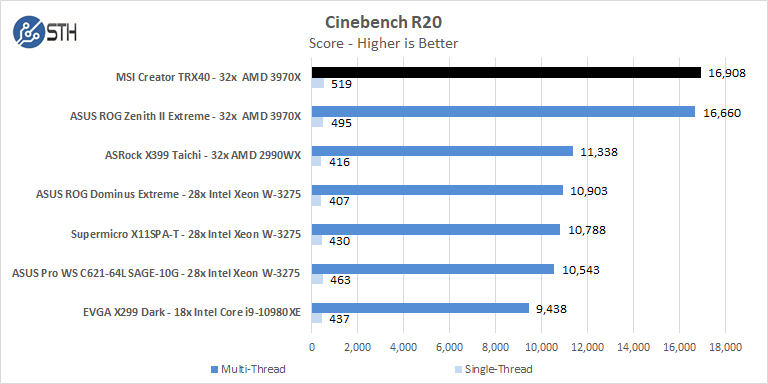
Here we see again the AMD Ryzen Threadripper 3970X dominates Cinebench R20 with ease.
MSI Creator TRX40 Motherboard Geekbench 4
Geekbench 4 is a popular test suite. In 2020 we will look to include Geekbench 5 as well.
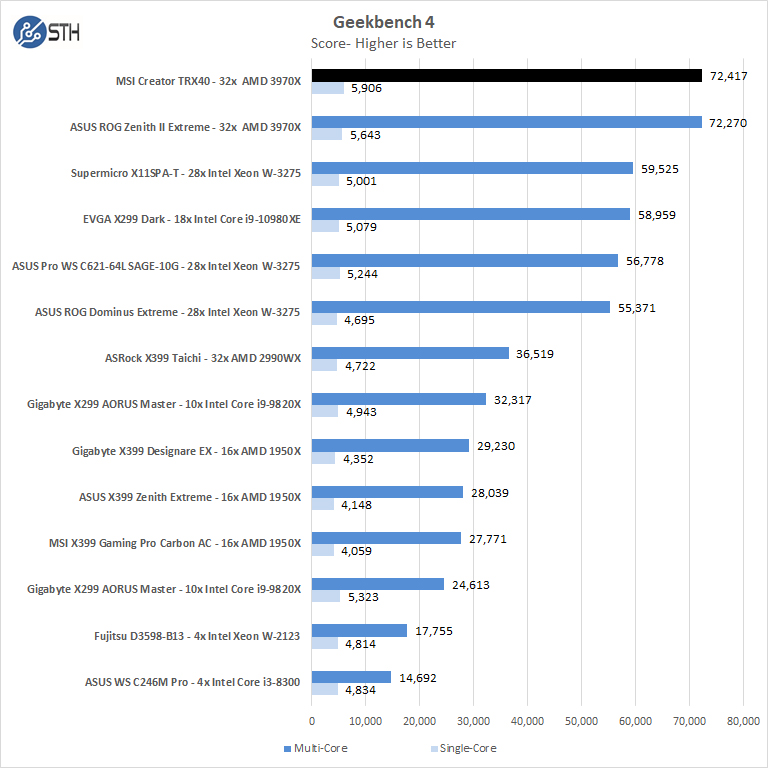
Geekbench is a benchmark that the MSI Creator TRX40 Motherboard and AMD Ryzen Threadripper 3970X generates very good results, at the top of the charts.
MSI Creator TRX40 Motherboard 3DMark PCI Express Bandwidth
3DMark feature tests are special tests designed to highlight specific techniques, functions, or capabilities. The 3DMark PCI Express feature test is designed to measure the bandwidth available to your GPU over your computer’s PCI Express interface.
The test aims to make bandwidth the limiting factor for performance. It does this by uploading a large amount of vertex and texture data to the GPU for each frame. The result of the test is the average bandwidth achieved during the test.
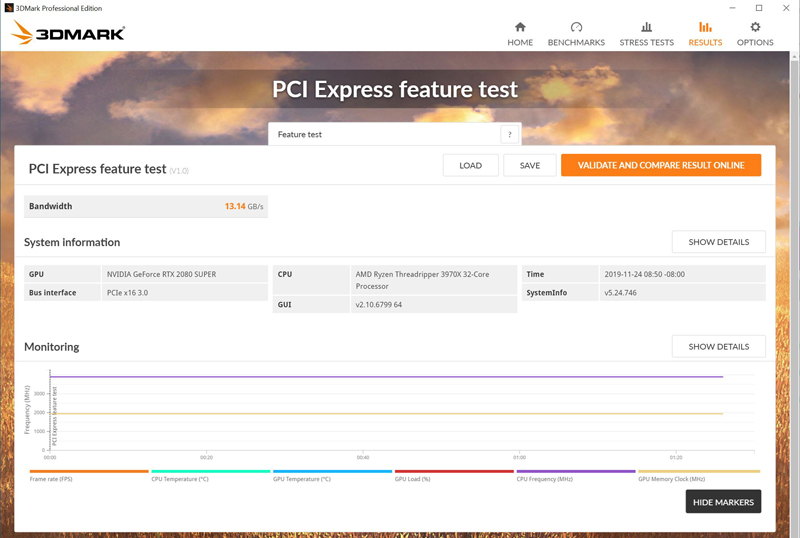
With this test, we see 12.14GB/s PCIe bandwidth going to our NVIDIA RTX 2080 SUPER graphics card, which is a PCIe Gen 3 graphics card. At this end of the workstation market, you are likely using an NVIDIA GPU until AMD comes out with higher performance options.
Next, we are going to look at system performance benchmarks.

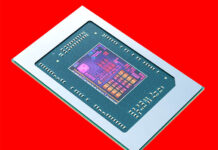

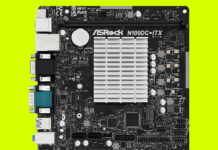
Many thanks, William: Please permit me to share one of my pet peeves about NVMe.
You will hopefully recall how multiple integrated SATA ports eventually became standard
with full support for all modern RAID modes. It is my sincere hope that motherboard
and storage vendors will make it an industry goal to integrate full BOOTABLE support
for all modern RAID modes for any number of integrated M.2 ports. We have had a
lot of success formatting SSD RAID-0 arrays with Windows drive letters C: / E: and
with D: typically assigned to a hard-wired optical drive. We will only upgrade to
a TR system, like this excellent MSI motherboard, unless we can do fresh OS installs
to a fast RAID-0 array of multiple M.2 NVMe drives. Because we also rely a lot
on large ramdisks in our workstations, we need a fast non-volatile partition
where the latest ramdisk contents can be saved at SHUTDOWN and then
restored quickly at the next STARTUP. The ramdisk software we are currently
using has a neat “block” logic, which only requires saving logical blocks which
have changed since the most recent STARTUP. Given the speed we anticipate
with Gen4 M.2 RAID-0 arrays, the STARTUP and SHUTDOWN sequences should
be so incredibly fast as to be almost unnoticeable! Thanks again. /s/ Paul
We currently have one of these boards with a 3960X and 7 FireCuda 520 PCIe 4 2TB drives. I have configured six of them in RAID 0. I can tell you it’s stupidly fast (>20gbps synthetic disk performance)!
I’d be curious to know what people think is the best memory option for this board.
Pity they didnt include BMC/IPMI..
@Aaron Do you know how to build Unreal Engine 4 from source? I would love to see how fast that ThreadRipper machine can build it. My 6 core machine takes 73 minutes for reference.
The board does not support out-of-box SR-IOV, I was able to enable it (after a couple of days of research) with a workaround for it in KVM (not sure it’s even possible in Windows virtualisation or VMWare).
MSI kindly agreed to build a custom BIOS to enable that but also stated that the feature will never make it into an official BIOS.
If you want SR-IOV, look elsewhere (or ask for a custom BIOS – assuming MSI will be willing to do it) and before you buy any TRX40 motherboard, ask the manufacturer.
The trouble with custom BIOS is that there’s no “tracking” – once it is issued, there’s no guarantee MSI will rebuild it when new official BIOSes are released.